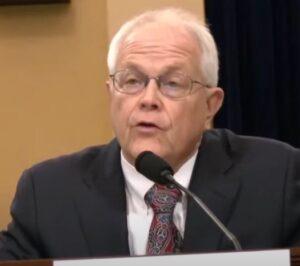WASHINGTON, DC — Ongoing problems with the pharmacy module in VA’s new Oracle electronic health record (EHR) have the potential to lead to medication errors, increasing lawmakers’ concern about plans to expand the new system.
VA and watchdog agencies have documented many problems with the new EHR, which was first rolled out in Spokane in October 2020 and has since been introduced at five VA locations. Pharmacies at those facilities have been particularly impacted, with some having to increase staffing by as much as 60% due to time-consuming workarounds required to get veterans their prescriptions in a reasonable timeframe. According to lawmakers, nearly 20% of the EHR patient safety reports at the facilities are related to the pharmacy.
Recently the VA Office of the Inspector General (OIG) discovered what legislators describe as “widespread errors in VA’s internal drug codes and health repository data.” As a result of these errors, a veteran treated at a facility using the new Oracle EHR who is then treated at a VA facility using the legacy Vista system may not have their medication information follow them.
“That means drug-to-drug interaction checks and allergy checks may be based on inaccurate information,” explained Rep. Matt Rosendale (R-MT) at a House VA Oversight Subcommittee hearing last month. “According to OIG, this problem may affect at least 250,000 veterans, and it has been going on for years.”
In the draft OIG report, inspectors describe one incident where a patient with PTSD and TBI with adrenal insufficiency was prescribed prednisone at a facility using the Oracle EHR. Shortly after, he was admitted to a residential rehabilitation treatment program at a VA facility using Vista. When the staff there pulled up his medication information, the prednisone prescription did not show up.
“On the fifth day in the residential program, the patient began exhibiting unusual behaviors associated with the lack of prednisone,” reported Deputy OIG David Case in his testimony. “The patient realized they needed more prednisone, but the nurse explained there was no prednisone on the patient’s medication list. Eventually, the patient found the active prednisone order on their personal cellphone and had to be transferred to a local emergency room for care.”
Veterans have not been informed about the potential problem, and VA has not sufficiently notified providers at legacy EHR sites, the OIG report stated.
“Legacy site leaders were told to have providers perform manual medication safety checks to replace the automated checks for new patients,” Case said. “These manual safety checks are complex and rely on the vigilance of pharmacists and front-line staff.”
Case also informed Congress about two other reports still in the draft phase. One details problems with the appointment-scheduling process in the new EHR. Canceled appointments requiring rescheduling are frequently lost rather than going to a reminder queue. Also, providers still cannot switch between in-person, telehealth and VA Video Connect without canceling the appointment and ordering a new one.
The second upcoming report describes how VHA is allowing mental healthcare staff at new EHR sites to make two fewer attempts to contact no-show patients than legacy EHR sites.
“This procedure creates a different standard of care for veterans at these sites,” Case declared.
Fixes for the pharmacy module have been slow in coming. In April 2023, Oracle launched a set of updates intended to eliminate the need for pharmacists to input medication information into both the EHR software and the Medication Manager system used for outpatient pharmacies and community care. This need to input information twice has been one of the most frustrating and time-consuming issues that VA pharmacists have found with the system, and it’s one of the reasons that it is taking pharmacists using the Oracle system three times as long to fill prescriptions as at legacy sites.
The updates ended up causing additional problems and were quickly rolled back. In February 2024, Oracle was set to try again, but that update was postponed due to testing problems. “This particular item demonstrates the larger issue,” Rosendale declared. “These are piecemeal, painfully slow improvements to software that seems to be fundamentally inferior to Vista.”
In the meantime, VA is set to launch the system at the Lovell Federal Healthcare Center in Chicago this month after pausing the EHR rollout in April 2023. Lovell is unique, being the only joint VA/DoD medical center. Despite the ongoing problems with the EHR, VA officials said they are optimistic about the launch.
“There are deep interdependencies between the DoD healthcare system and VA healthcare system,” explained Neil Evans, MD, director of VA’s Electronic Health Record Modernization Program. “One of the advantages we anticipate in going live is that we have a partner in DoD that has been able to successfully deploy the record across their healthcare system.”
The pause also has given Oracle and VA the time to focus specifically on Lovell, he added.
Not everyone shares VA’s optimism that the new EHR will eventually right itself, however.
Rep. Cathy McMorris Rodgers (R-WA), who represents the district that includes Spokane, said at the hearing, “We owe it to our nation’s heroes to get this right, and I believe that begins with pulling the plug on this deeply broken system and going back to one that works. That’s the only way to restore broken trust and help our veterans who have noone else to turn to.”
She went on to quote a VA pharmacist in her district talking about the Oracle system: “I cannot do this anymore. The stress of this system. Added workflow to make it function. I cannot care for my patients and stop caring for my own well-being.”


